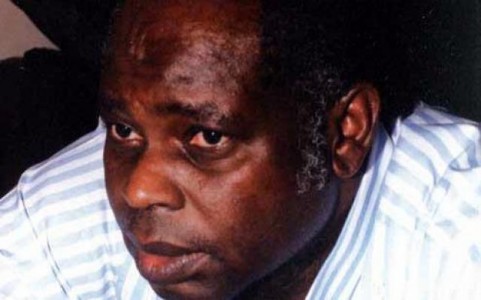Pardon: U.S law professor seeks American intervention over Alamieyeseigha
Professor Alexander Sierck wants the SEC to protect the interest of victims of corruption in Nigeria.
A U.S. law professor, Alexander Sierck, has sent an appeal to the American government through the Securities and Exchange Commission (SEC) to “use the pardon granted a former regional governor in Nigeria, Diepreye Alamieyeseigha, as an illustration that there is no remedy for victims of corruption in Nigeria.”
Mr. Alamieyeseigha, former Bayelsa State Governor, was pardoned by President Goodluck Jonathan in a controversial move condemned by the Nigerians and the International Community.
In the appeal sent this week by Professor Sierck, who is also Volunteer Counsel to Socio-Economic Rights and Accountability Project
(SERAP), the SEC was urged not to “overlook the Alamieyeseigha’s case, and to take action to ensure that victims of corruption in cases like this can receive appropriate remedies in the US.”
The letter reads in part: “This follows up on our telephone conversation early last summer concerning the March 15, 2012 proposal
of my pro bono client SERAP, the Nigerian NGO, that the SEC establish a process to enable foreign victims of corruption and bribery by
actors subject to FCPA jurisdiction to apply for some or all of the proceeds of SEC FCPA settlements, subject to anti-corruption
safeguards.”
“I understand that, while there is some sympathy for such victims, some in the US contend that such victims should seek redress under the laws of their home countries rather than look to the US as a first resource. In SERAP’s judgment this latter approach has more appeal in theory than in practice.”
“One recent event in Nigeria illustrates this point. A former regional governor in Nigeria, Diepreye Alamieyeseigha, pled guilty to several charges of bribery and money laundering for acts while in office and was sentenced to jail. Yet only recently Nigeria’s president, Goodluck Jonathan issued him a full pardon.”
“According to the Nigerian Government, the US Embassy in Abuja, via its Twitter account denounced this as follows: ‘We are deeply
disappointed. We see this as a setback in the fight against corruption.’”
“The point here is that, with due respect, victims of corruption are often without recourse in their home countries. This means that they must look elsewhere. WE hope that the US and other OECD member countries will not overlook this important consideration.”
The SEC had earlier decided to “give appropriate consideration to the thoughtful” request by SERAP asking the agency to “establish an
efficient case-by-case process for the payment of some or all of US Foreign Corrupt Practices Act (FCPA) civil penalty and disgorgement proceeds to or for the benefit of the victimized foreign government agency or the citizens of the affected foreign country like Nigeria.”
This was contained in a letter dated April 25, 2012, and signed by Robert S Khuzami, Director SEC, and addressed to Professor Sierck.
The letter reads in part: “Thank you for your letter on behalf of SERAP, in which you request that the Enforcement Division establish a
case-by-case policy or process that would enable foreign governmental entities that have been victims of corruptly-procured contracts, civil society groups in foreign home country and the US-nonprofit organization serving that foreign country to obtain some or all of the civil penalty and disgorgement proceeds that companies pay in connection with violations of the US Foreign Corrupt Practices Act (FCPA).”
Professor Sierck practices law in Washington, D.C. office of Cameron LLP. For 13 years he has co-taught a course at Georgetown’s law school on international white collar crime. He is a former Director of Trade Policy at the Antitrust Division of the U.S. Department of Justice.

No comments:
Post a Comment